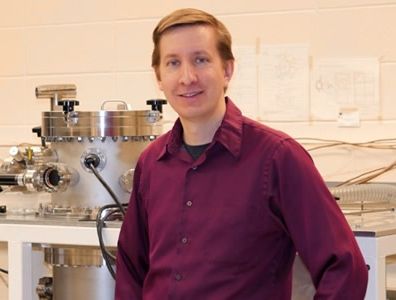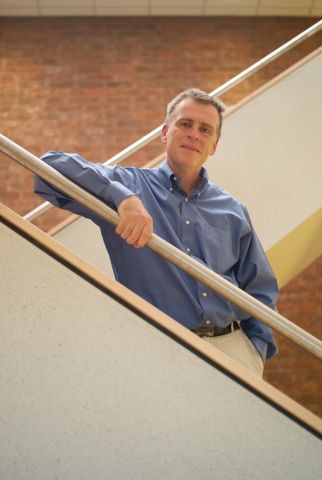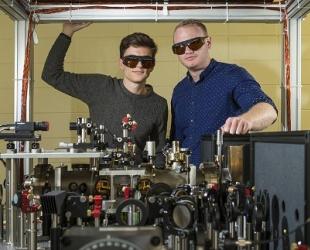Page 10790
May 18, 2016
Meet Daydream, Google’s vision for virtual reality
Posted by Shailesh Prasad in categories: mobile phones, virtual reality

Google’s new virtual-reality platform, Daydream, will include VR-ready phones and a headset and controller set to come out in the fall. CNET sat down with Google VR chief Clay Bavor to talk about the company’s roadmap for the new technology.
Watch more CNET videos: http://www.cnet.com/video
Continue reading “Meet Daydream, Google’s vision for virtual reality” »
May 18, 2016
Here’s How Nike Will (Probably) 3D-Print Your Next Shoes
Posted by Shailesh Prasad in category: 3D printing
May 18, 2016
Digital Shadows — new tool helps organisations peer inside data breaches
Posted by Karen Hurst in categories: business, cybercrime/malcode, singularity
Hmmmmm.
“We had analysts crawling all over that,” says Chappell of the Hold Security cache. “Quickly it was clear that a lot of those were from previous breaches.”
Anyone using this tool would have had a rapid assessment of their potential exposure. If breached data turns out to be new, the next task is to understand how it might have ended up in the hands of criminals. There are several sources for breached data including straight database theft but also phishing attacks and malware campaigns, each with its own dynamics and set of business implications.
Continue reading “Digital Shadows — new tool helps organisations peer inside data breaches” »
May 18, 2016
New type of graphene-based transistor will increase the clock speed of processors
Posted by Karen Hurst in categories: computing, materials
New graphene transistor makes for a faster processor.
Scientists have developed a new type of graphene-based transistor and using modelling they have demonstrated that it has ultralow power consumption compared with other similar transistor devices. The findings have been published in a paper in the journal Scientific Reports. The most important effect of reducing power consumption is that it enables the clock speed of processors to be increased. According to calculations, the increase could be as high as two orders of magnitude.
“The point is not so much about saving electricity — we have plenty of electrical energy. At a lower power, electronic components heat up less, and that means that they are able to operate at a higher clock speed — not one gigahertz, but ten for example, or even one hundred,” says the corresponding author of the study, the head of MIPT’s Laboratory of Optoelectronics and Two-Dimensional Materials, Dmitry Svintsov.
May 18, 2016
Cosmic dust on Earth reveals clues to ancient atmosphere
Posted by Karen Hurst in category: biological
The oldest space dust yet found on Earth suggests that the ancient atmosphere of Earth had significantly more oxygen than previously thought, a new study finds.
Although oxygen gas currently makes up about one-fifth of Earth’s air, there was at least 100,000 times less oxygen in the primordial atmosphere, researchers say. Oxygen easily reacts with other molecules, which means it readily gets bound to other elements and pulled from the atmosphere.
Previous research suggests that significant levels of oxygen gas started permanently building up in the atmosphere with the Great Oxidation Event, which occurred about 2.4 billion years ago. This event was most likely caused by cyanobacteria — microbes that, like plants, photosynthesize and release oxygen. [Infographic: Earth’s Atmosphere Top to Bottom].
Continue reading “Cosmic dust on Earth reveals clues to ancient atmosphere” »
May 18, 2016
A&S Physicist Awarded IBM Grant to Develop Quantum Computing
Posted by Karen Hurst in categories: computing, quantum physics
So, IBM is giving grant money to A&S to build a Quantum Computer. Hmmm; so IBM announced they had a Quantum Computer and computing services via cloud. Guessing IBM has a pseudo version of QC given this move.
A physicist in the College of Arts and Sciences has been awarded a major grant to help develop quantum computing technology.
Britton Plourde, associate professor of physics, is using a three-year, $900,000 grant from IBM to conduct research for the LogiQ Program. LogiQ is part of the Intelligence Advanced Research Projects Activity (IARPA), based in the Office of the Director of National Intelligence.
Continue reading “A&S Physicist Awarded IBM Grant to Develop Quantum Computing” »
May 18, 2016
Chief Scientist at Security Innovation Presents on Quantum Safety at Fourth International Cryptographic Module Conference
Posted by Karen Hurst in categories: cybercrime/malcode, encryption, information science, quantum physics
I am glad that D. Whyte recognizes “If quantum computers are developed faster than anticipated, certification would mandate insecure modules, given the time to approve and implement new quantum resistant algorithms. Worse, it is conceivable that data encrypted by a certified module is more vulnerable than data encrypted by a non-certified module that has the option of using a quantum-safe encryption algorithm.”
Because many of us who are researching and developing in this space have seen the development pace accelerated this year and what was looking like we’re 10 years away is now looking like we’re less than 7 years.
Dr. William Whyte, Chief Scientist for Security Innovation, a cybersecurity provider and leader in the 2015 Gartner Magic Quadrant for Security Awareness Training, will be presenting at the Fourth International Cryptographic Module Conference in Ottawa, Ontario.
May 18, 2016
QC will change many industries and even some fortunes as well
Posted by Karen Hurst in categories: computing, economics, employment, quantum physics
QC will change many industries and even some fortunes as well. So, no wonders Canada & Australia both deem it as a priority.
Mike Lazaridis, founder of Blackberry Limited and the visionary who led the establishment of the Perimeter Institute for Theoretical Physics (PI), the Institute for Quantum Computing (IQC) at the University of Waterloo and Quantum Valley Investments, delivered a keynote address highlighting the Quantum Valley model in Waterloo Region, Ontario, Canada and the emphasis both federal and provincial governments have placed on the development of quantum technologies.
The Quantum Europe conference comes at a time when large scale investments from tech companies and governments around the world, including in Canada, are being made as part of the “Second Quantum Revolution” – a new global industry fueled by the commercialization of new transformative quantum technologies.
Continue reading “QC will change many industries and even some fortunes as well” »
May 18, 2016
AI Research Tool Runs Experiment that won 2001 Nobel Prize in Physics
Posted by Karen Hurst in categories: computing, information science, quantum physics, robotics/AI
Australian physicists’ team has developed a new research assistant to carry out experiments in quantum mechanics in an artificial intelligence (AI) algorithm form, which quickly took control of the experiment, learned the job tasks and even innovated. In a statement, co-lead researcher Paul Wigley from the Australian National University (ANU) Research School of Physics and Engineering, said he didn’t expect that the machine would be able to conduct the experiment itself from scratch within an hour.
He added that in case a simple computer program had been used, it would have taken much more time than the age of the universe to go through all the combinations and work on it.
Scientists were looking forward to reconstruct an experiment that was awarded the 2001 Nobel Prize in Physics, which included very cold gas trapped in a laser beam called a Bose-Einstein condensate.
Continue reading “AI Research Tool Runs Experiment that won 2001 Nobel Prize in Physics” »
















